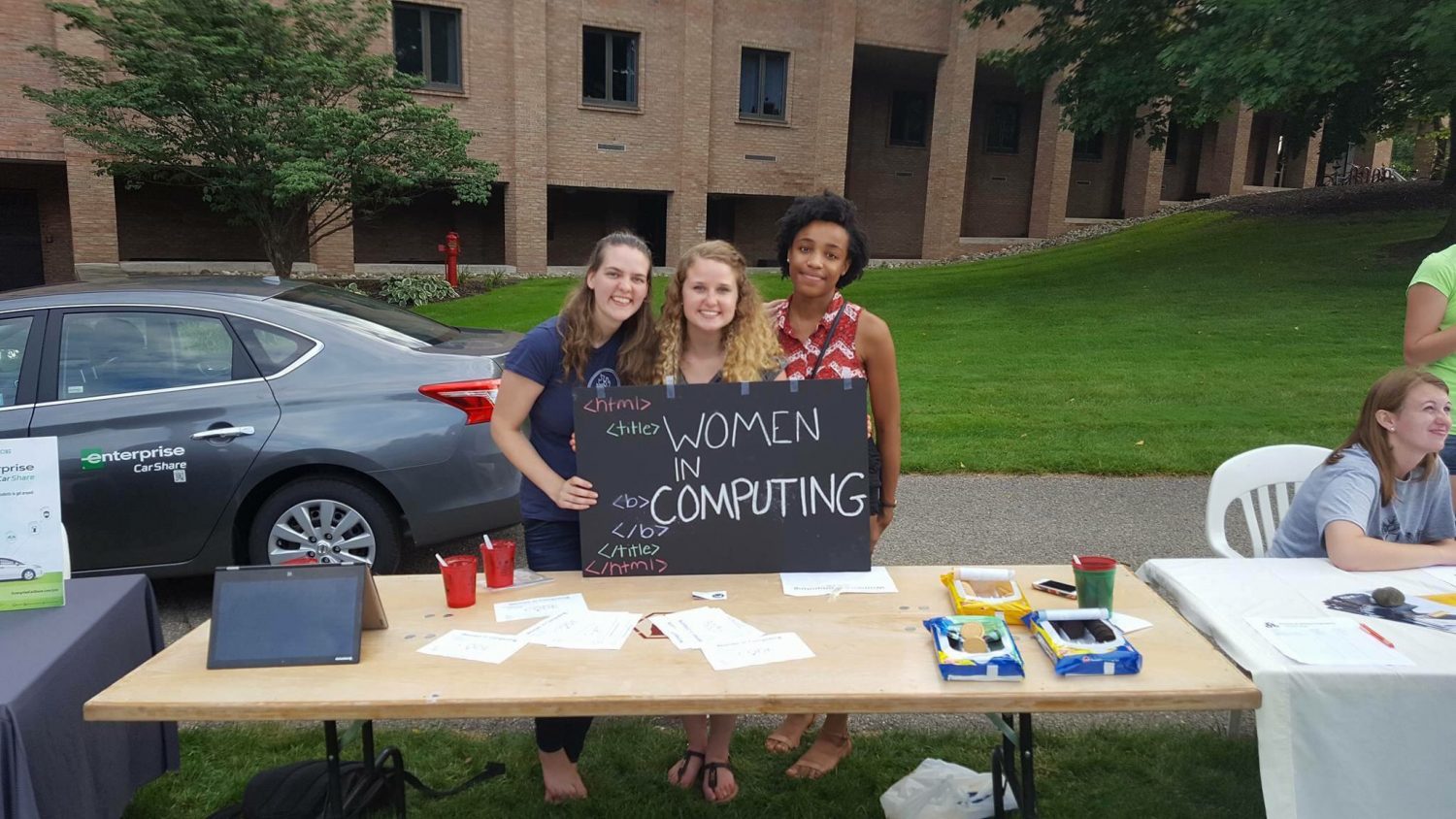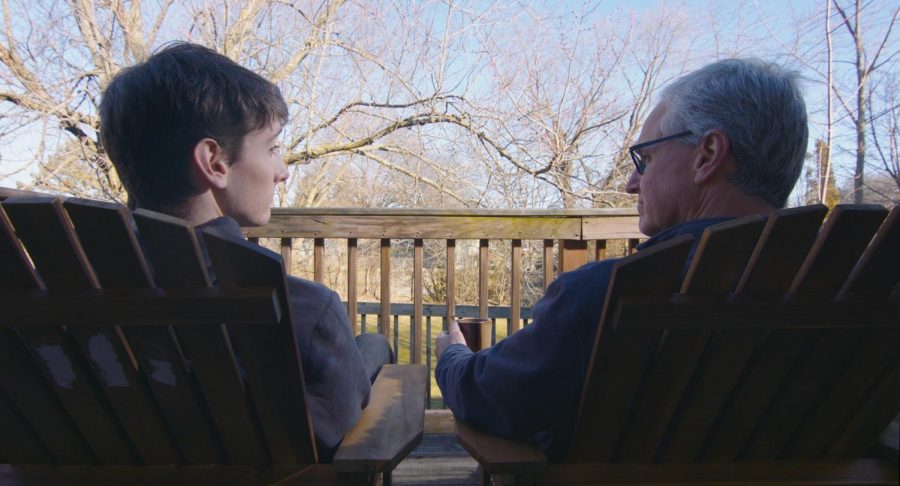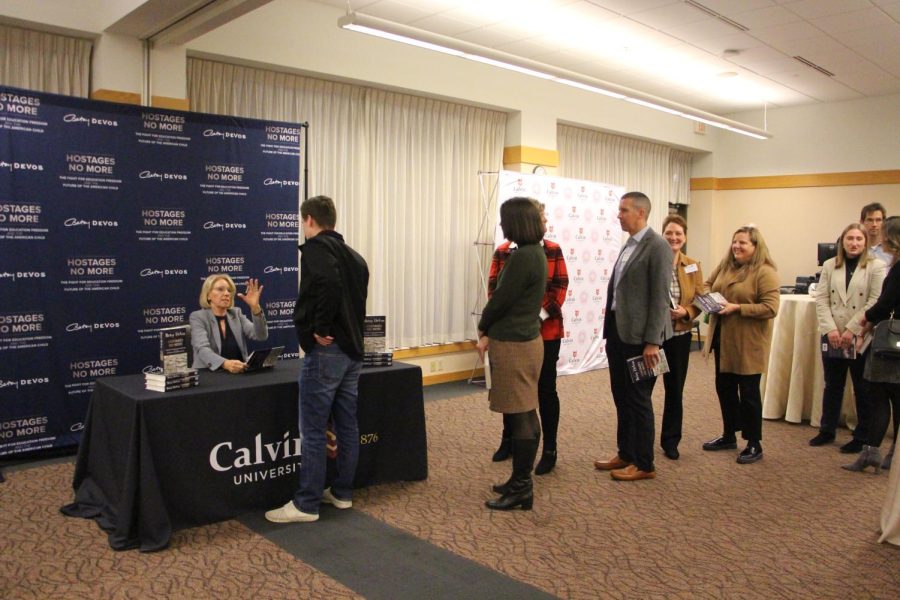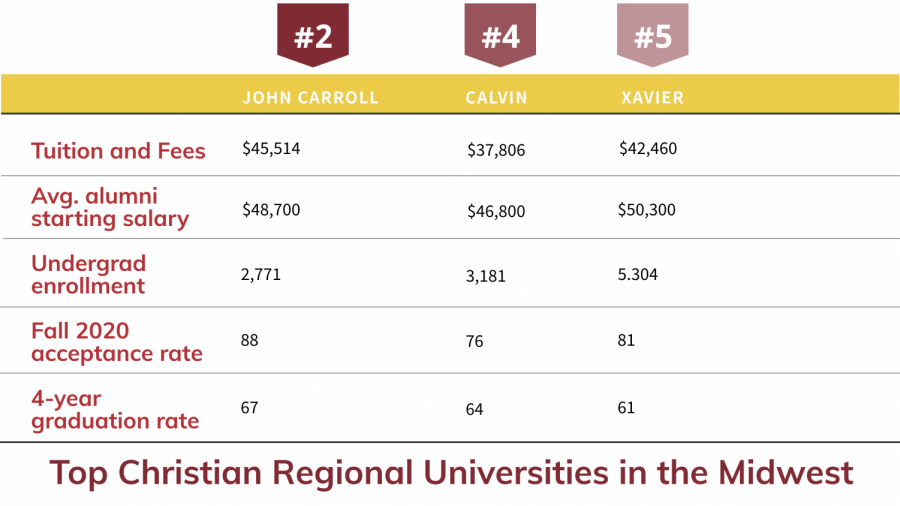Every organization — from small nonprofits to multinational companies — could use a computer scientist. But despite the diversity of these jobs, the industry remains dominated by white men. Out of Calvin’s 100 computer science (CS) majors, only 15 percent are women. For many, including local computer scientist Stella Michael, this is a problem.
“You can’t have a consumer base that’s diverse and have all men in leadership,” she said in a panel after last Friday’s screening of “CODE: Debugging the Gender Gap,” an event put on by Calvin’s CS department.
Highlighting the stories of women in CS and tech, “CODE” explores why there are so few women in these fields and how changing this will better society. One reason women don’t go into CS, the film explains, is because, at least in American culture, girls aren’t encouraged to take interest in math or science. Out of pressure to avoid being seen as weird or nerdy, high schoolers, especially women, may downplay their abilities. Unfortunately, as the documentary explains, once people believe something about themselves (e.g. “I’m bad at math”), that belief is more likely to become reality.
A dearth of other women can make majoring in CS seem daunting, especially since male students often come in with a background in code.
Senior CS major Beka Agava explained, “Getting to class and seeing all these people, all these guys, who had done computer science since they were like ten years old when I wasn’t even sure what computer science was … I felt intimidated.”
Lydia Cupery, also a senior CS major, echoed this. “I was intimidated in my first classes because I thought Eclipse was a coding language, but it’s a development interface … I told that to someone, and he looked at me like I was stupid.”
Department chair professor Joel Adams explained that women in intro classes consistently do better than men. But “because of this perception that they’re falling behind,” it’s common for female students getting As to quit while the “noisy guys” getting Cs and Bs continue on. Having female professors could encourage potential majors to stick with CS, despite feeling intimidated.
“If I’m a girl trying to be a computer science major but there’s no female computer science professors, I have no one to look up to,” said Agava. “My first professor was Professor Nelesen. … She helped me a lot.”
Cupery agreed. “I think that’s probably 50 percent of the reason I even got into computer science — because Professor Nelesen was teaching the intro class and I loved it.”
Now that Professor Nelesen has moved to a different city, there are no female professors to act as role models. Still, the CS department hopes to encourage women to stick with CS by providing scholarships through their 50 Percent Initiative.
The department also hosts a chapter of the middle and high school club Girls Who Code and has started Women in Computing, a student org which will pair younger women in intro classes with upperclass CS mentors.
Despite the department’s efforts, however, as intro student Dana Drosdrick expressed in an op-ed last week, female students can still feel ostracized.
Once women get into CS careers, they often leave sooner than men — not because they are less capable, but because they may feel they don’t belong. The women featured in CODE tell stories of being harassed and subject to the casual sexism of coworkers.
Adams hopes that, by showing films like this, men will go into the industry “sensitized to these issues,” becoming part of the solution instead of contributing to the problem. The panelists, including Calvin grads and locals in tech, encouraged listeners to stand up for themselves in the workplace — whether against sexism or for parental leave — and to trust that by doing good work, they will succeed in the industry.
“People can’t argue if you write good code,” said Calvin alumna Ashley Peters.
Encouraging more women to enter CS isn’t simply a demographic concern. As one example, CODE describes how a car company with only men in leadership designed airbags that worked for them but caused injury to women and children.
Peters, however, encouraged everyone to “be careful not to think just adding a dash of women will fix everything.” What’s important, she said, isn’t the fact that they are women, but, “the diversity of thought of everybody.”
The CS department can continue to grow in encouraging female students, but the percentage of women in intro classes is improving. “It used to be as low as five or ten percent,” Adams said. “So we’re seeing progress, but it’s very slow progress.”
While women in the documentary and conversation shared times they felt excluded in the CS industry, Cupery has found a supportive community in her major.
“One thing that has helped me,” she said, “is having male classmates who are confident that I know what I’m doing, too. … When I work in a group in software engineering or in the lab, I feel completely comfortable.”







